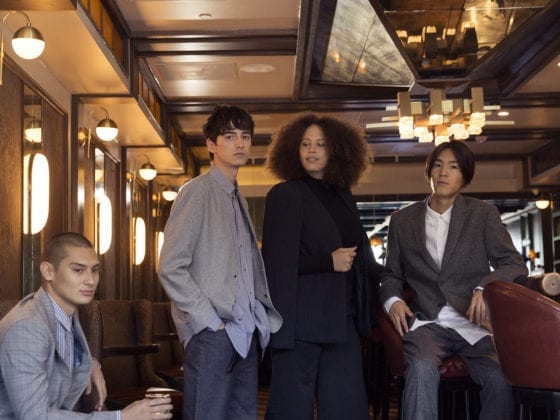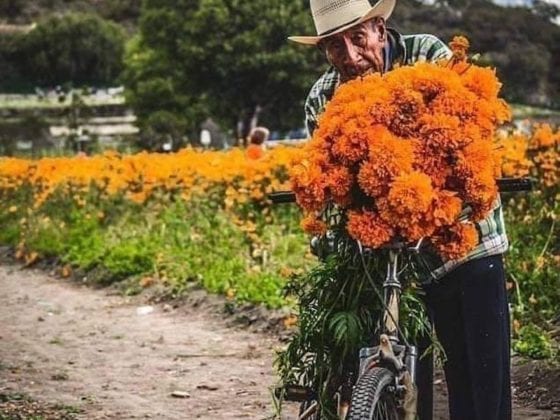As I opened the curtains to another sunny day in Los Angeles, I could feel the tears welling up in my eyes. The water on the stove was boiling as I prepared a late morning’s cup of coffee. I tried steering my thoughts away from what was bothering me and holding my emotions at bay. The tears did not come quickly, but once one fell, they came suddenly and all at once.
I slept later than normal. The night before had been long but good—full of laughter, loud singing to throwback songs, a long car ride, s’mores, a bonfire, laughter and friendship. Myself and a group had celebrated a friend’s 29th birthday, and we had driven to a beach town to commemorate the end of his 20s.
That night, as another friend breached the turning tide of a new decade, I found myself having a difficult time staying present. A beautiful sunset, friends, camp food, a warm, iridescent bonfire springing out of the pit as we all huddled around in sweaters and blankets—what could be missing?
As I celebrated one friend, my mind kept wandering off to another friendship, a friendship that had recently taken a turn for the worst and was seemingly fading out like the tide I could hear ebbing and flowing behind me as I sat on the beach. I struggled to pull my mind to the present moment but did my best to enjoy the beauty and joy of the night.
As I celebrated one friend, my mind kept wandering off to another friendship, a friendship that had recently taken a turn for the worst.
The next morning, however, it seemed like I was overdue for some internal processing. It was time to sit with my sadness. It was time to come to terms with the pain I was trying to evade and unsure of how to face. In the previous three months, one of my closest friends had begun distancing herself from me. The hardest part was that I didn’t know why. I had tried reaching out several times but had been met with radio silence. The seeming rejection made my soul ache.
I thought giving it space might be the solution, but after months of silence, the uneasiness that comes with an unresolved relational rift hit me square in the eyes. It specifically had come to the forefront of my mind at the beach bonfire because I had made a final attempt that morning to reach out to my friend.
“Hey, I have not heard from you in awhile. Is everything OK? Have I done something to upset you?”
Nothing.
As I sat at my window Saturday morning, wrapped in my warmest blanket, I decided it was time for me to embark on the sobering journey of processing a fractured, and a potentially ending, friendship. I knew it would hurt, but I also knew that avoiding it would cost me more in the long run.
Clutching my cup of coffee, as if it was the closest thing I had to a warm friend in that moment, I took out my journal and began to write. The lines of paper began to fill with words as the tears streamed down my face—the sweet release of acknowledging pain while putting one foot in front of the other.
The lines of paper began to fill with words as the tears streamed down my face—the sweet release of acknowledging pain while putting one foot in front of the other.
Here is what I came to understand while processing a friendship breakup:
- You have to acknowledge the pain.
When you can acknowledge how you feel, you take ownership over those emotions, and you do not allow them to own you. Say what you are feeling out loud. “This hurts. I’m sad. This doesn’t feel good. This is really hard.” - Do what you can.
Focus on what you can control. Oftentimes, all that we can control is ourselves. Have you done what you know to do? Have you pursued an honest, open and (potentially) hard conversation? Ask yourself if you have done your best in this situation. Be honest if there is something getting in the way of you putting forth your best effort (like pride or fear). - Do not pour gas on the fire.
Don’t involve more people into this friendship rift than necessary. Doing so can quickly turn a painful friendship ending into a full, blown out broadway musical. Don’t allow the situation to turn into gossip or drama. Speak kind words about the other person, and if that is not possible, at the very minimum, hold your tongue. - Acknowledge that you have limited control.
After you have done what you know to do, let go. This part will hurt. Acknowledge your limits. You can’t control another person or the outcome of this friendship. Friendship is a two-way street. You can only control you. Hold the friendship with open hands. - Focus on the friendships you do have.
Be present. Enjoy the company of the people you do have in your life. Don’t focus so much on what you lost that you lose sight of what you have. - Forgive the other person.
This will take time, but it is possible. More than time, forgiveness will take intention. Take time to focus on healing your own heart and actively choose to forgive the person when they come to your mind.
Someone wise recently said to me, “Friendship should not be hard.” The simplicity of her words resonated with me. Yes, meaningful friendship requires work and effort. It will require intention and care, like all good things, but it is not something you should have to force. Knowing the difference is essential.
If a friendship matters and carries weight, losing it will be hard too. The fear of potential loss and rejection can make it easy to run and stay guarded, but we lose out when we keep friendship at bay. To truly love someone is the bravest act of the soul.
Have you ever had a meaningful friendship end? How did you process the loss?
Image via Kelly Elaine











